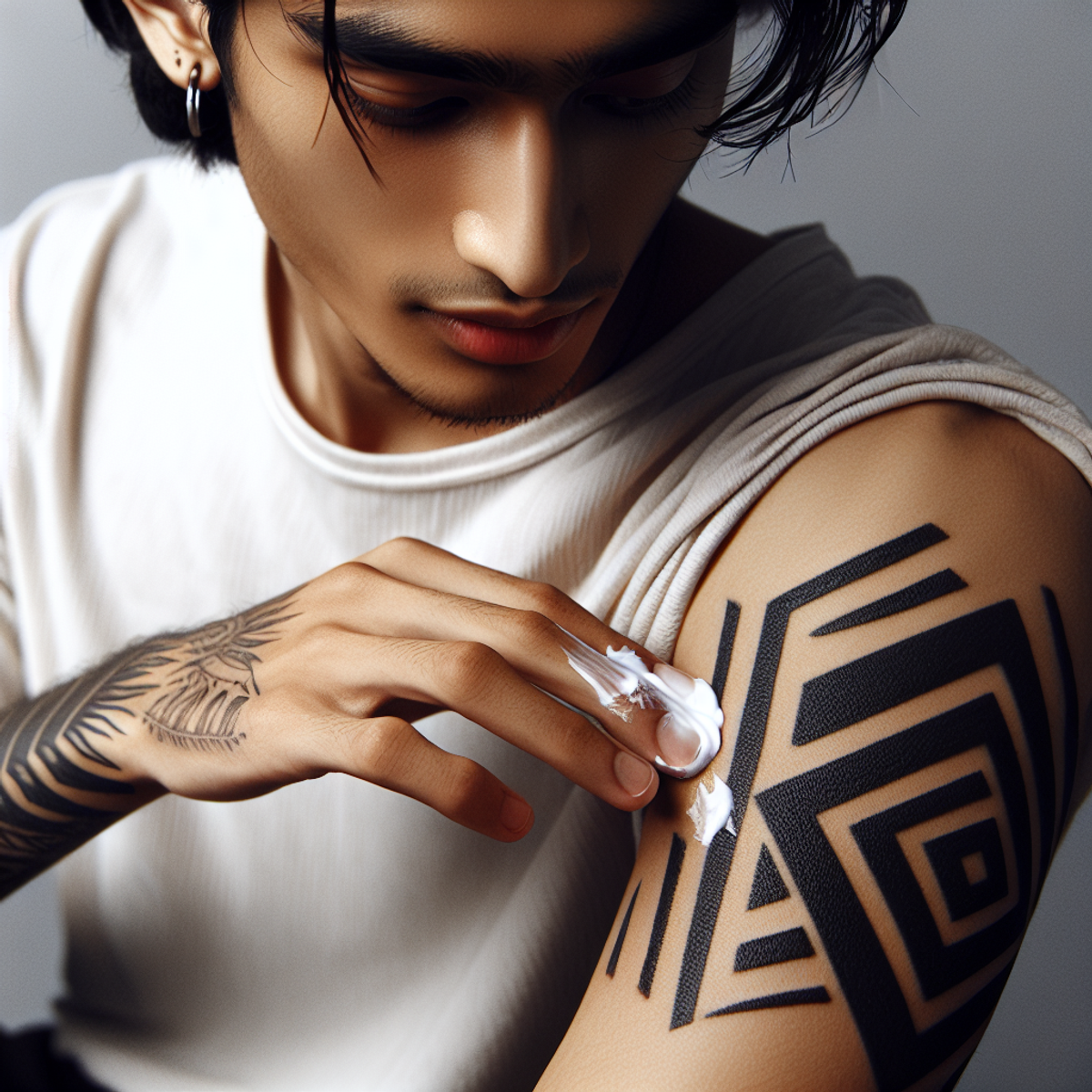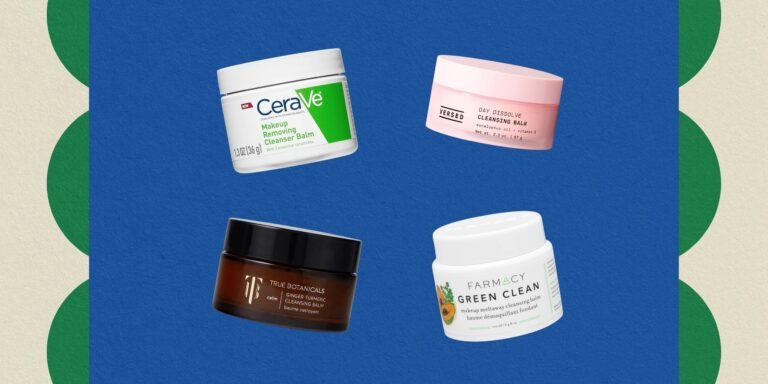Itchy Tattoos Happen: Here’s Why (and How to Treat Them)

Introduction
Itchy tattoos can be a frustrating and uncomfortable experience for many people. When you get a tattoo, the skin goes through a healing process, which can sometimes cause itching. It’s important to understand why itchy tattoos happen so that we can manage and treat them properly.
Why Do Tattoos Itch?
When your tattoo is healing, your skin is going through changes as it naturally renews itself. This process includes inflammation (swelling) and increased blood flow to the tattooed area, which can make it feel itchy. While some itching is normal, persistent or severe itching could be a sign of underlying issues that need attention.
Key takeaway: While itchy tattoos can be a common part of the healing process, they can also indicate underlying issues that require attention and care. It is important to address the itchiness properly to ensure proper healing and prevent complications.
The Science Behind Itchy Tattoos
Understanding why tattoos itch during the healing stage and how it relates to the skin’s natural renewal mechanisms is key to managing and treating this common issue. There are several factors that contribute to tattoo itchiness, including the normal healing process, infections, allergic reactions to ink, ink contamination, and preexisting skin conditions.
Normal Healing Process
During the tattooing process, tiny needles penetrate the outer layer of the skin, depositing ink into the dermis. This process triggers an immune response, causing inflammation in the area. Inflammation is a crucial part of the healing process as it helps remove damaged cells and initiate tissue repair. However, along with inflammation comes increased blood flow to the tattooed area, which can result in itching sensations.
Common Culprits
It’s important to be aware of potential risk factors that can exacerbate tattoo itchiness:
- Infections: Improper aftercare or exposure to unclean environments can lead to bacterial or fungal infections in the tattooed area. These infections can cause redness, swelling, and intense itching. If you suspect an infection or experience severe and persistent symptoms, it’s important to seek medical attention.
- Allergic Reactions to Tattoo Ink: Certain ink pigments contain allergens that can trigger an allergic response in some individuals. Common allergens found in tattoo ink include nickel, cobalt, and chromium. When these allergens come into contact with the skin, they can cause itchiness and irritation.
- Ink Contamination Issues: In some cases, non-sterile equipment or low-quality inks may contain harmful substances such as heavy metals or bacteria. These contaminants can lead to adverse reactions and itchy symptoms. A study by the Joint Research Centre highlights the importance of using high-quality, sterile inks to minimize these risks.
- Preexisting Skin Conditions: Individuals with preexisting skin conditions like eczema, psoriasis, or dermatitis may be more prone to developing itchy reactions in tattooed areas. The disrupted skin barrier in these conditions makes the skin more susceptible to irritation and inflammation. However, proper care can help manage these conditions and reduce tattoo-related itchiness.
Understanding the underlying causes of tattoo itchiness allows for better management and treatment. By recognizing the factors that contribute to itchy tattoos, individuals can take appropriate steps to alleviate discomfort and prevent further complications.
Remember, choosing a reputable tattoo artist who follows strict hygiene practices can significantly reduce the risk of adverse reactions. It’s also important to note that a comprehensive guide on tattoo safety offers valuable insights into minimizing health risks associated with tattoos.
Managing Tattoo Itchiness: Dos and Don’ts
When dealing with itchy tattoos, it’s crucial to understand the dos and don’ts to effectively manage the discomfort without causing further complications. Here are some essential points to consider:
1. Excessive Scratching or Picking at Itchy Tattoos
- The Risks: Excessive scratching or picking at itchy tattoos can lead to skin damage, delayed healing, and an increased risk of infection. It can also cause the ink to become patchy or dislodged, affecting the overall appearance of the tattoo.
- Alternative Coping Strategies: Instead of scratching, consider gently tapping the itchy area to alleviate the sensation. Distraction techniques such as engaging in activities that shift your focus away from the itchiness can also be helpful. Additionally, keeping the skin moisturized can reduce the urge to scratch. For more tips on managing itchiness, you can explore home remedies for itch relief which offer effective solutions for various conditions causing itchiness.
2. The Limitations of Over-the-Counter (OTC) Creams for Treating Tattoo Itchiness
- Understanding OTC Creams: Over-the-counter creams may provide temporary relief from itchiness, but they often have limitations when it comes to addressing the underlying causes. While OTC creams can soothe mild itching, they may not be effective for persistent or severe cases.
- Emphasizing the Need for Medical Advice: If you experience prolonged or intense itchiness associated with your tattoo, it’s essential to seek medical advice. A healthcare professional can assess the situation and recommend appropriate treatments tailored to your specific needs. This is particularly important if you suspect an allergic reaction or infection related to your tattoo. Sometimes itchiness can also be a symptom of an underlying condition like dermatitis, and prompt medical evaluation can help address it effectively.
It’s worth noting that the sensation of scratching can feel good and provide temporary relief, but it’s important to resist the urge as excessive scratching is counterproductive and can worsen the situation. While these strategies are helpful for managing tattoo itchiness, it’s important to remember that persistent or severe cases may require medical intervention. For further insights into why scratching feels good and how to manage it, you can visit this informative article on why scratching feels good. By being mindful of these dos and don’ts, you can take proactive steps to manage tattoo itchiness effectively while promoting optimal healing and skin health.
Effective Home Remedies for Soothing Itchy Tattoos
If you’re dealing with an itchy tattoo, you know how frustrating and uncomfortable it can be. Thankfully, there are several home remedies you can try to help soothe the itchiness and promote healing. Here are some effective options:
1. Hydrating the Skin with Oatmeal-based Lotions or Fragrance-Free Moisturizers
Oatmeal-based lotions and fragrance-free moisturizers are great for hydrating your skin without causing further irritation. They’re specifically designed to be gentle and non-irritating, making them perfect for soothing itchy tattoos.
These products work in two ways:
- Hydration: Keeping your skin moisturized is crucial for preventing dryness, which can worsen itchiness. Oatmeal-based lotions and fragrance-free moisturizers help lock in moisture, providing relief from the itch.
- Anti-inflammatory properties: Oatmeal has natural anti-inflammatory properties that can help calm irritated skin. This is especially beneficial for healing tattoos that may be red or inflamed.
When using these products, remember to:
- Apply them gently: Avoid rubbing or scrubbing your tattooed area too hard, as this can cause further irritation.
- Choose the right product: Look for lotions or moisturizers that are specifically labeled as “fragrance-free” and “dye-free” to minimize the risk of irritation.
2. Harnessing the Power of Cold
Cold therapy is another effective way to relieve itchiness in tattooed skin. The application of cold helps numb the area, temporarily reducing the urge to scratch. It also constricts blood vessels, which can help reduce inflammation and itching sensations.
Here’s how you can use cold therapy at home:
- Cold compress: Take a clean cloth and soak it in cold water. Wring out the excess water and place the cloth on your itchy tattoo for 5-10 minutes. Repeat this process several times a day as needed.
- Ice pack: If you prefer a more targeted approach, you can use an ice pack wrapped in a thin towel. Apply it to the itchy area for 5-10 minutes, taking breaks in between to prevent skin damage.
Remember to never apply ice directly to your skin, as this can cause frostbite. Always use a cloth or towel as a barrier.
3. Avoiding Scratching
While it may be tempting to scratch your itchy tattoo, doing so can actually make the problem worse. Scratching can:
- Damage the healing skin
- Increase the risk of infection
- Introduce more irritants (like dirt or bacteria) into the area
Instead of scratching, try these alternative methods to relieve the itch:
- Tap or pat the area gently with clean hands
- Use a soft, clean cloth to apply pressure without rubbing
- Blow cool air from a fan onto your tattoo for temporary relief
4. Wearing Loose Clothing
Tight clothing can rub against your tattooed skin and trigger itchiness. To prevent this, opt for loose-fitting clothes made from breathable fabrics like cotton. This allows air to circulate around your tattoo, keeping it dry and reducing irritation.
5. Practicing Good Hygiene
Keeping your tattoo clean is essential for preventing infections that can
When to Seek Professional Help
It’s important to know when your tattoo itchiness is more than just the normal healing process and requires professional medical attention. Here are signs that indicate you should see a dermatologist:
- Signs of Infection or Allergic Reactions Spreading Beyond the Tattoo Site: Watch out for symptoms like redness, excessive swelling, warmth, or pus around the tattooed area. These may indicate an infection or allergic reaction that needs immediate medical evaluation. If you see these signs spreading beyond the tattoo area, it’s crucial to get professional help to avoid further problems.
- The Role of Reputable Tattoo Artists in Minimizing Risks: Choosing a well-known tattoo studio with strict cleanliness practices and experienced artists can greatly lower the chances of negative reactions and issues. By picking a skilled and reputable artist, you can reduce potential problems with ink quality, sterilization, and overall tattoo safety.
To sum it up, paying attention to any unusual or severe symptoms related to your itchy tattoo is important for proper healing and addressing any underlying concerns quickly. Getting professional help when needed can help manage and resolve any complications efficiently.
Conclusion
Taking proper care of your tattoo during the healing process is essential to prevent itchiness and ensure optimal healing. Here are the key takeaways:
- Comprehensive aftercare routine: Following a comprehensive aftercare routine is crucial for preventing itchy tattoos. This includes:
- Keeping the tattoo clean by gently washing it with a mild, fragrance-free soap and lukewarm water.
- Applying a thin layer of fragrance-free moisturizer or an oatmeal-based lotion to keep the skin hydrated and promote healing.
- Avoiding excessive sun exposure and using sunscreen on the tattooed area to protect it from harmful UV rays.
- Avoiding tight clothing or anything that may cause friction or irritation to the tattooed skin.
- Consulting a professional: If you experience persistent or concerning symptoms such as severe itchiness, redness, swelling, pus formation, or signs of infection spreading beyond the tattoo site, it is important to consult a dermatologist or tattoo artist for personalized advice. They can assess your situation and provide appropriate treatment options.
Remember, each person’s body reacts differently to tattoos, so it’s important to listen to your body and seek help when needed. By following these guidelines and seeking professional advice when necessary, you can minimize the risk of itchy tattoos and promote proper healing.
“Proper aftercare is key to preventing itchy tattoos. Take care of your tattoo like you would any other wound – with gentle cleaning and moisturizing. And if you notice any unusual symptoms or have concerns about your healing process, don’t hesitate to reach out to a professional.”










